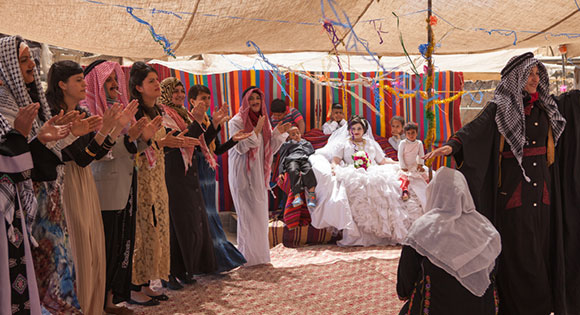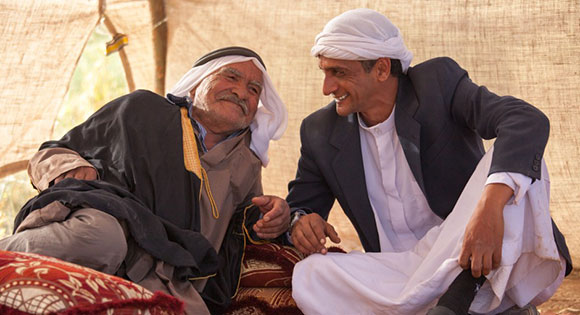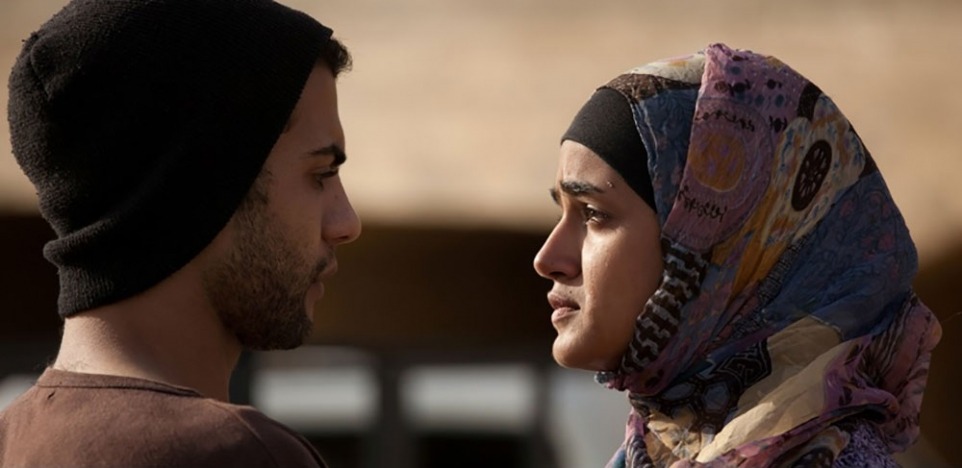This engaging drama is set in the Negev Desert in southern Israel. The men rule this Bedouin community with very rigid and retrograde views of women; they severely restrict their activities in order to keep them subservient and obedient to their husbands. Polygamy is accepted by these once nomadic people.
Suliman (Hitham Omari) is busy preparing for his wedding to his second wife. His 18-year-old daughter, Layla (Lamis Ammar) has been ordered to spruce up the fancy house for the new bride. Jalila (Ruba Blal-Asfour), Suliman's first wife, is not a happy camper in this tense celebration where the older women in the community wear fake mustaches.

Layla has been spoiled by her father who has given her all the accoutrements of the Western world – a good education, driving lessons, and a cell phone. No wonder she rebels against him when he orders her to marry an overweight Bedouin whom she finds totally unappealing. She wants to wed Anwar (Jalal Masrwa), a handsome young man from the university she has been seeing secretly. Although understanding Layla's situation, her mother orders her not to see him again.

Israeli writer and director Elite Zexer has created a story that is critical of arranged marriages and well-attuned to the difficult choice which Layla must make: she can obey her parents and marry the one who has been chosen for her or she can leave behind her family and homeland with her young lover. Her choice also includes a clash between following tradition and giving in to the yearning for freedom.
Although Sand Storm lacks the dramatic intensity and cinematic creativity of Mustang, another film about women trying to follow the dictates of the heart rather than the edicts of family and society, this one does successfully plumb the values choices this young Bedouin woman must make.
